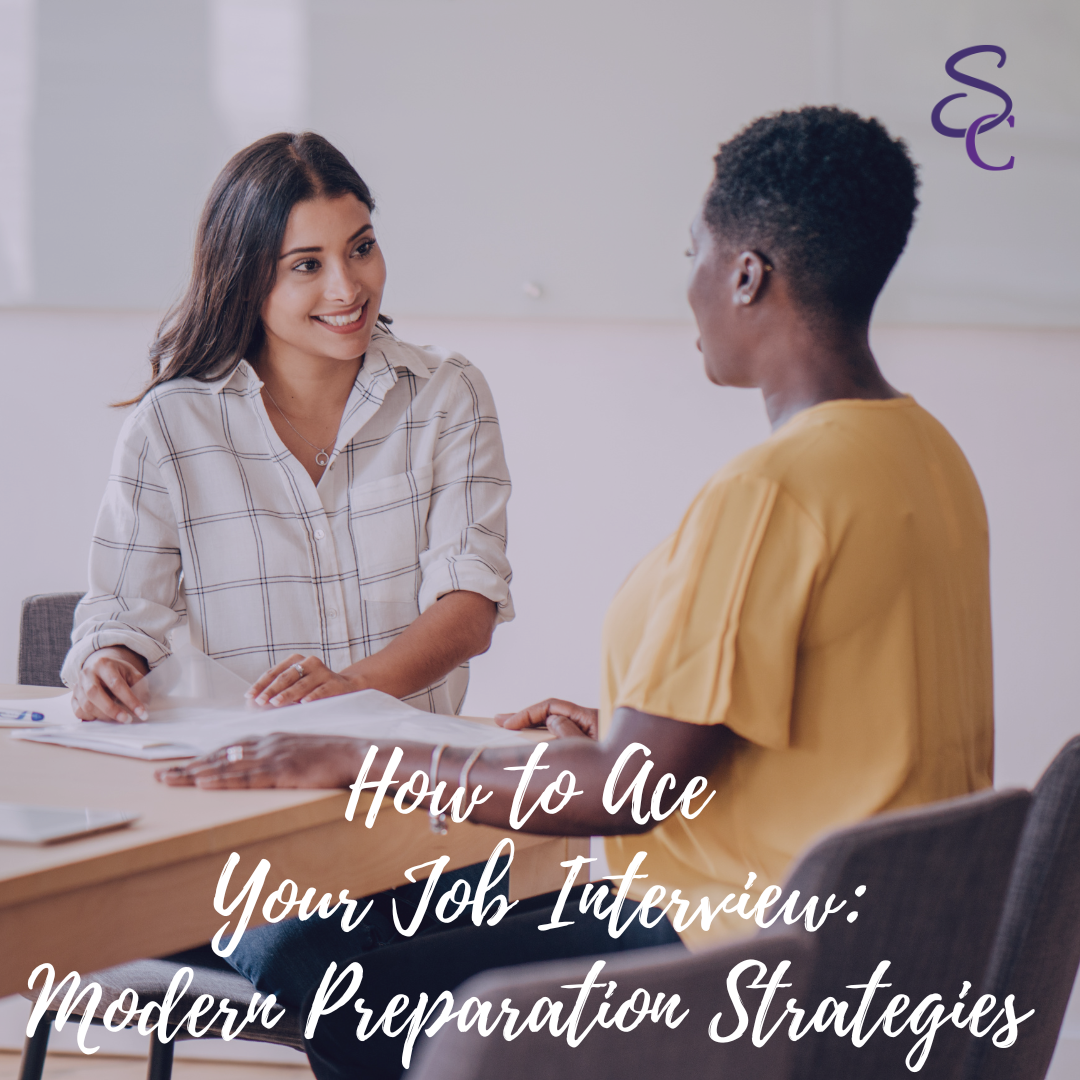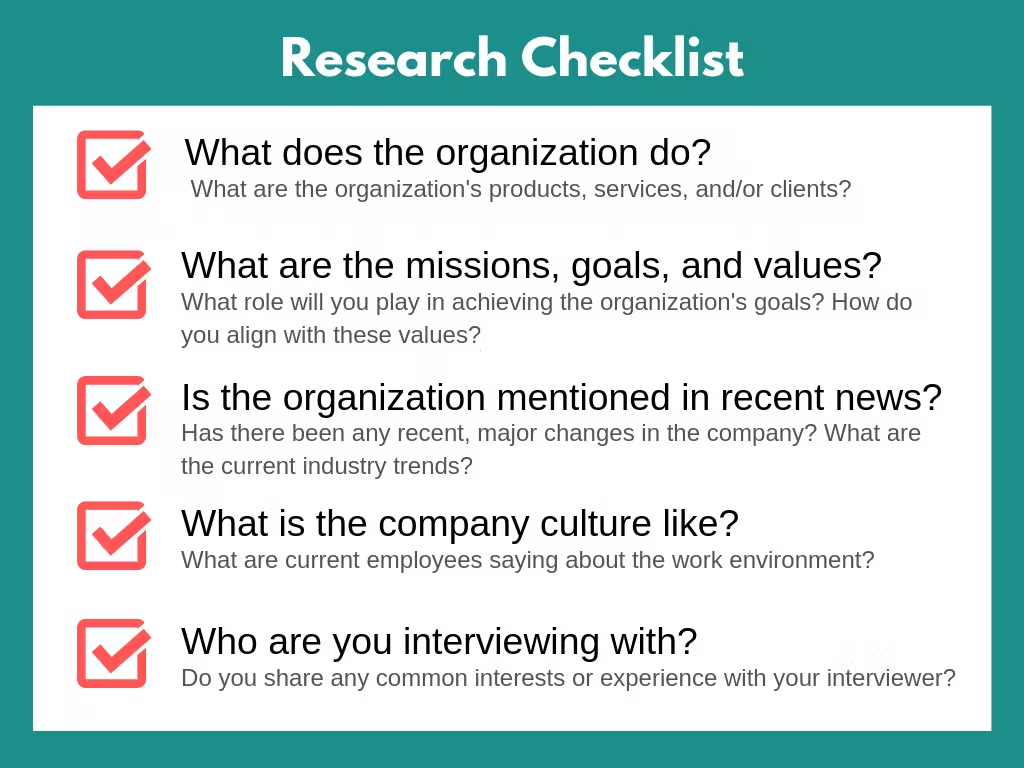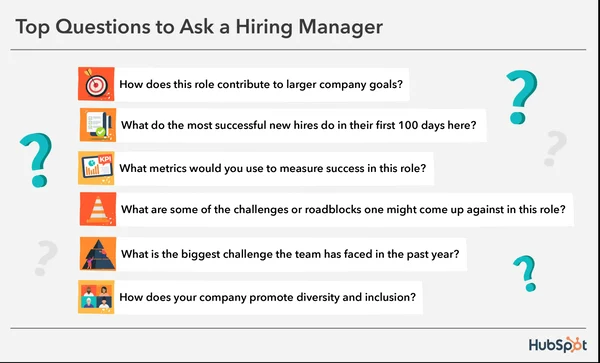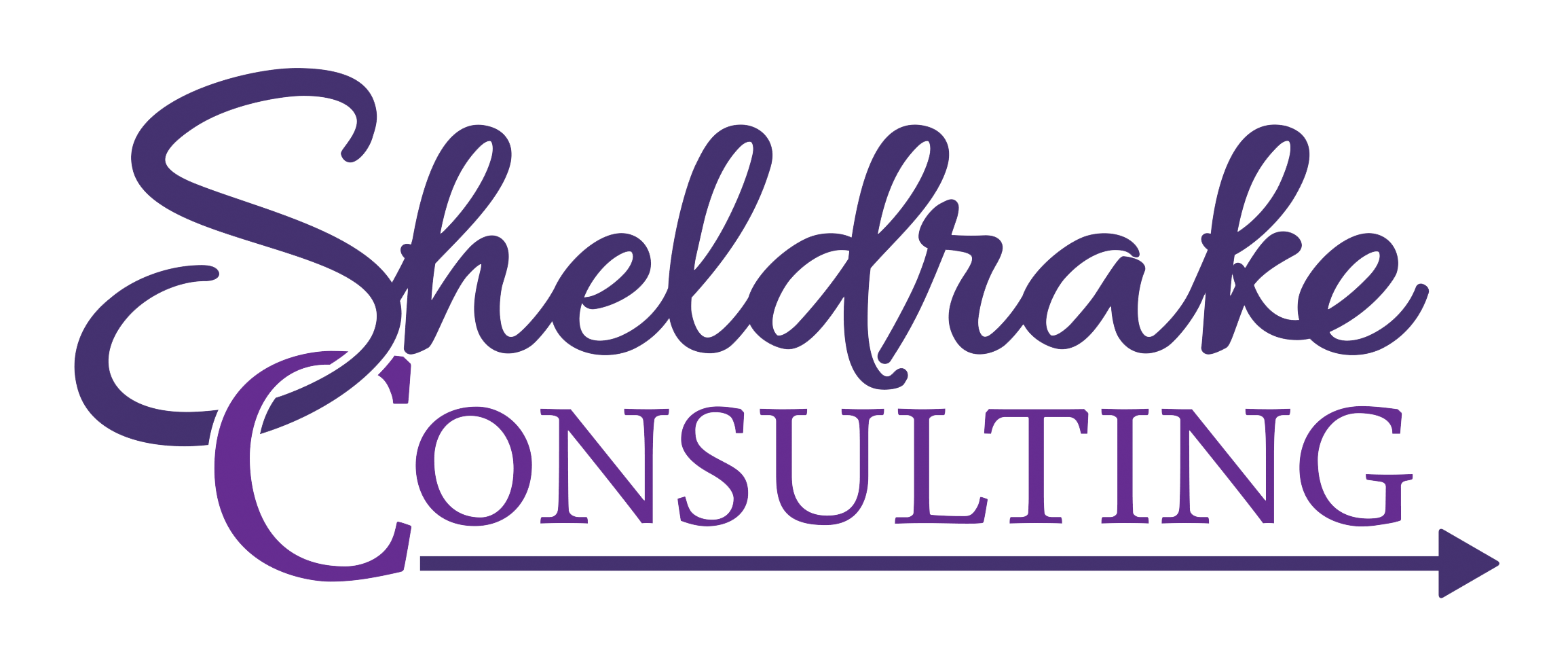Congratulations! You’ve landed a job interview! Now What? Gone are the days when you could wing it in a job interview without preparing. Today’s job market is competitive and it’s crucial that you take the time to research and educate yourself on the company, the job, and what you bring to the role. Consider this the modern guide to interview preparation.

Now that companies have detailed websites and social media accounts there is no excuse for not doing a deep dive on the company, its culture, and its employees. Just like you would gather information for other important decisions in your life, you need to bring the same type of energy to your interview preparation. Here’s how you can leverage new technology and insights to stand out amongst the crowd AND find the perfect fit:
Research the Company’s Online Presence
In addition to the company website, explore their social media channels. Platforms like LinkedIn, Facebook, and Instagram can provide a window into the company culture, recent projects, and key initiatives. Pay attention to the tone and content they share, as it can help you tailor your responses to align with their values and mission.
Understand what the company does, what its values and mission statement are, and who its major clients are. Most companies have a newsroom where you can read current press releases or watch interviews. This is usually under the “About” section of the website. Additionally, do a general Google search on the company and click on the “News” section to see if they’ve recently appeared or been mentioned anywhere. Don’t forget to research trends in their industry and look at their competitors.

You can also glean insights into company culture via social media to see what activities the company is participating in and if employees are engaged with and commenting on these posts. You can look at reviews on Glassdoor to see what former employees have said about their experience.
Tip: From your research, come up with five or six questions to ask about the company, the state of the industry, and the culture.
Investigate Your Interviewers
If you know who will be interviewing you, check out their LinkedIn profiles. This can give you a sense of their professional background, interests, and potential talking points. Check their LinkedIn/social media profiles to see if they have a phonetic spelling of their name or an audio recording. If it’s a complicated name, ask them for the pronunciation during your first introduction. On that same note, keep your eye out for their pronouns and make sure you’re using the correct ones. Sometimes these might be listed on an email signature or in a social media profile. If you do see this, it helps to practice in advance, so you don’t offend them during the interview.
Understand what your interviewer does at the company. If they are in human resources and doing the first screening, they might not have a detailed account of what the position will look like day to day. This is a good opportunity to ask about the culture, reporting structure, overall company objectives, etc.

If the interviewer could potentially be a colleague, take a look at how their job might differ from yours and how you would interact with them. You can get into a more advanced industry discussion and showcase your expertise here.
Use LinkedIn to discover commonalities that will help casual conversation. Do you have similar work experience? Maybe you went to the same school or are involved with the same industry organizations. If you’re waiting for other interviewers to join, these commonalities make for great icebreakers to dispel any awkward moments.
Tip: Use the “Connections in Common” feature on LinkedIn to see if you share any mutual connections, which can serve as an icebreaker.
Choose Your Attire Thoughtfully
The days of universally suiting up for a job interview are behind us. Company culture often dictates dress code, so research what’s appropriate. If the company has a casual, creative vibe, a suit might feel out of place. Instead, opt for business casual attire that still looks polished and professional.
Consider the logistics of the job – if you’re going to be in manufacturing visiting plants, you probably don’t want to wear stilettos. If you’re working with children, consider what jewelry or accessories might not work with kids.
If your job interview is on Zoom, do a practice round with a friend to see what works best on screen. A blouse and a jacket might play better on camera in this situation. Solid colors work better than patterns on camera. Consider your lighting and how your clothing will look on camera.
If there is any uncertainty, always lean towards overdressing versus underdressing. If you wear a suit and feel like you’re too formal once you get into the room, you can always take off your jacket.
Tip: Review team photos or videos on the company’s website or social media to get a sense of their typical work attire.
Know Your Story
While you can list your work history and your job titles, these names and dates don’t tell your story. When someone asks you to “Tell me about yourself…” how will you answer? You don’t want to start listing your work history as a response, instead craft your story in three parts: Past, Present, and Future.
Write out your career story and have a few points you are practiced in to help you get from one section to the next. This will ensure that you don’t go off on a tangent because you know where you need to go next.
Start with your past, why did you get into the industry? What excites you about it, how did you develop your expertise, etc? Then share some of your big highlights – what projects did you work on, what were your successes? Then move into your present, what are you doing now and why are you looking to make a move? As for your future, this is where the new company comes into play. What about this job interests you? How will it fit into your career story?
Tip: Start by writing out your story in bullets and then add a story or anecdote under each point that you can speak to.
Prepare for Digital Fluency Questions
As technology continues to evolve, employers may ask about your comfort level with digital tools, remote work, or industry-specific software. Be prepared to discuss any relevant experience and consider brushing up on the latest tools and trends in your field.
If you’ve already met with a hiring manager, you can ask what sort of technology the company uses and then do some additional research before the next interview.
Tip: Highlight any experiences with virtual collaboration tools like Slack, Trello, or Microsoft Teams, especially if the company values digital communication.
In today’s digital world, interview preparation involves more than just rehearsing answers. It’s about understanding the company culture, leveraging technology to make informed decisions, and showcasing your adaptability and digital fluency. Embrace these modern tools and insights to ace your job interview and find the role that fits you best. If you want to practice, let me know and I will set up a mock interview so you can get comfortable pre-interview.

